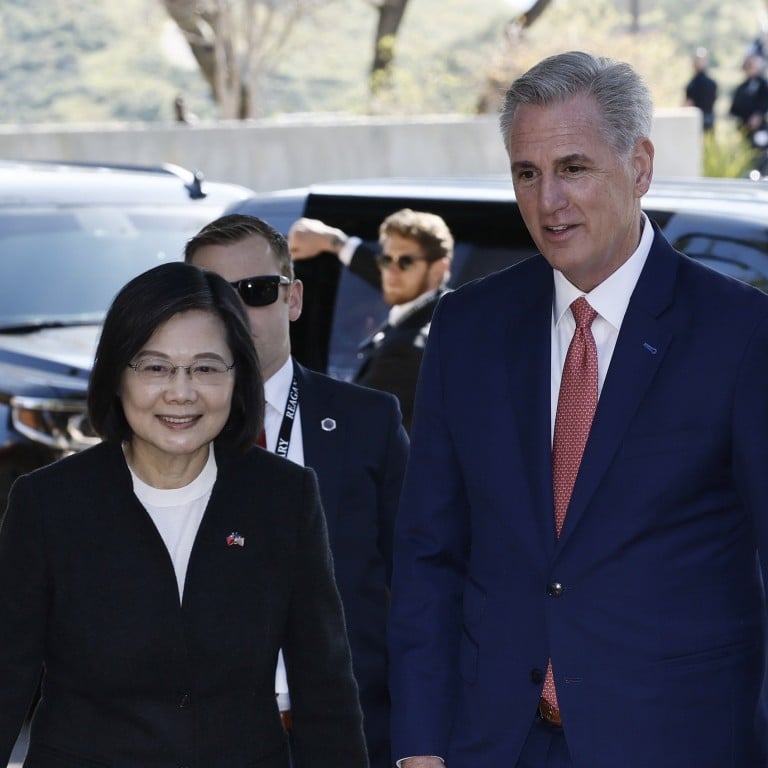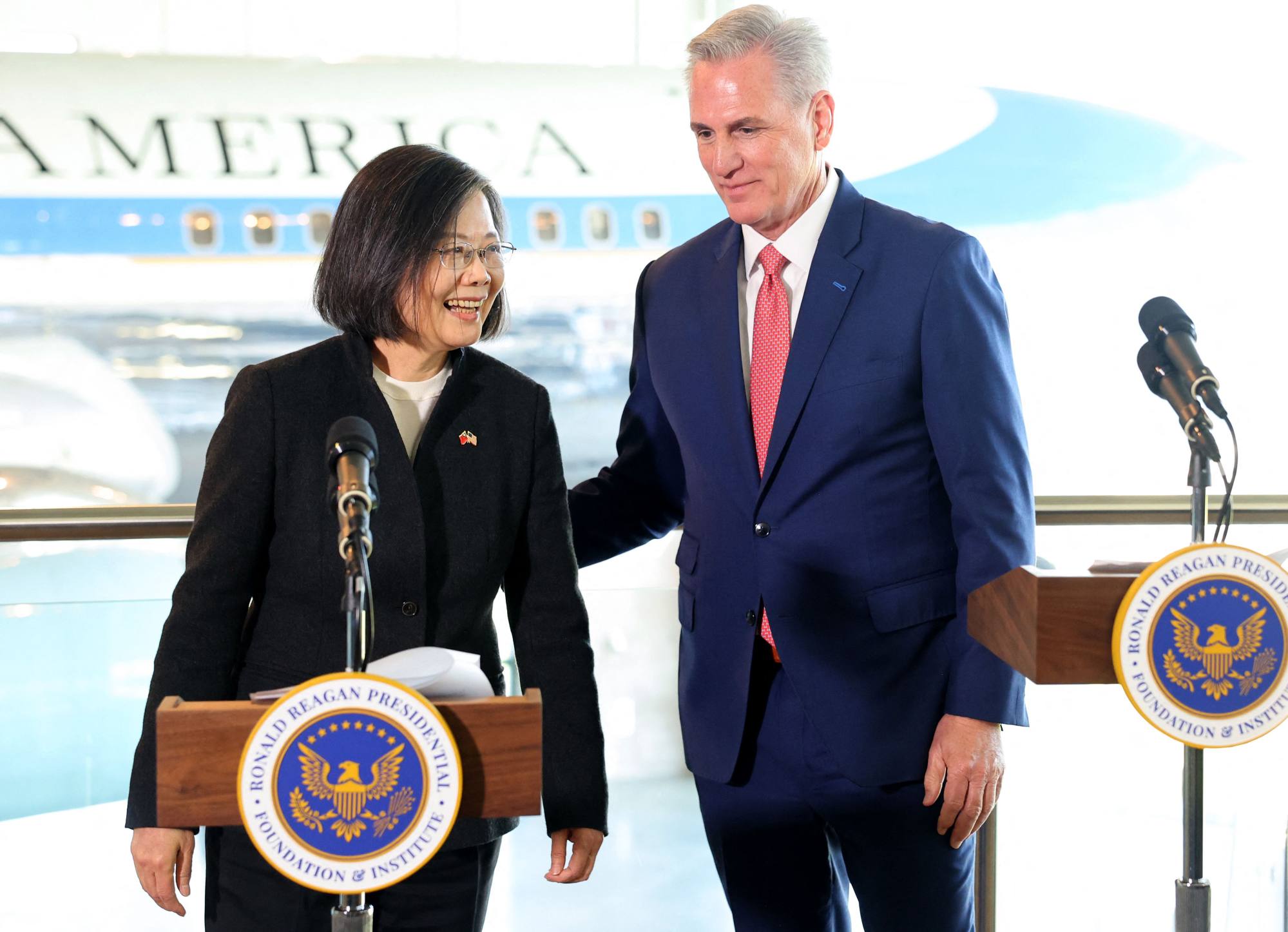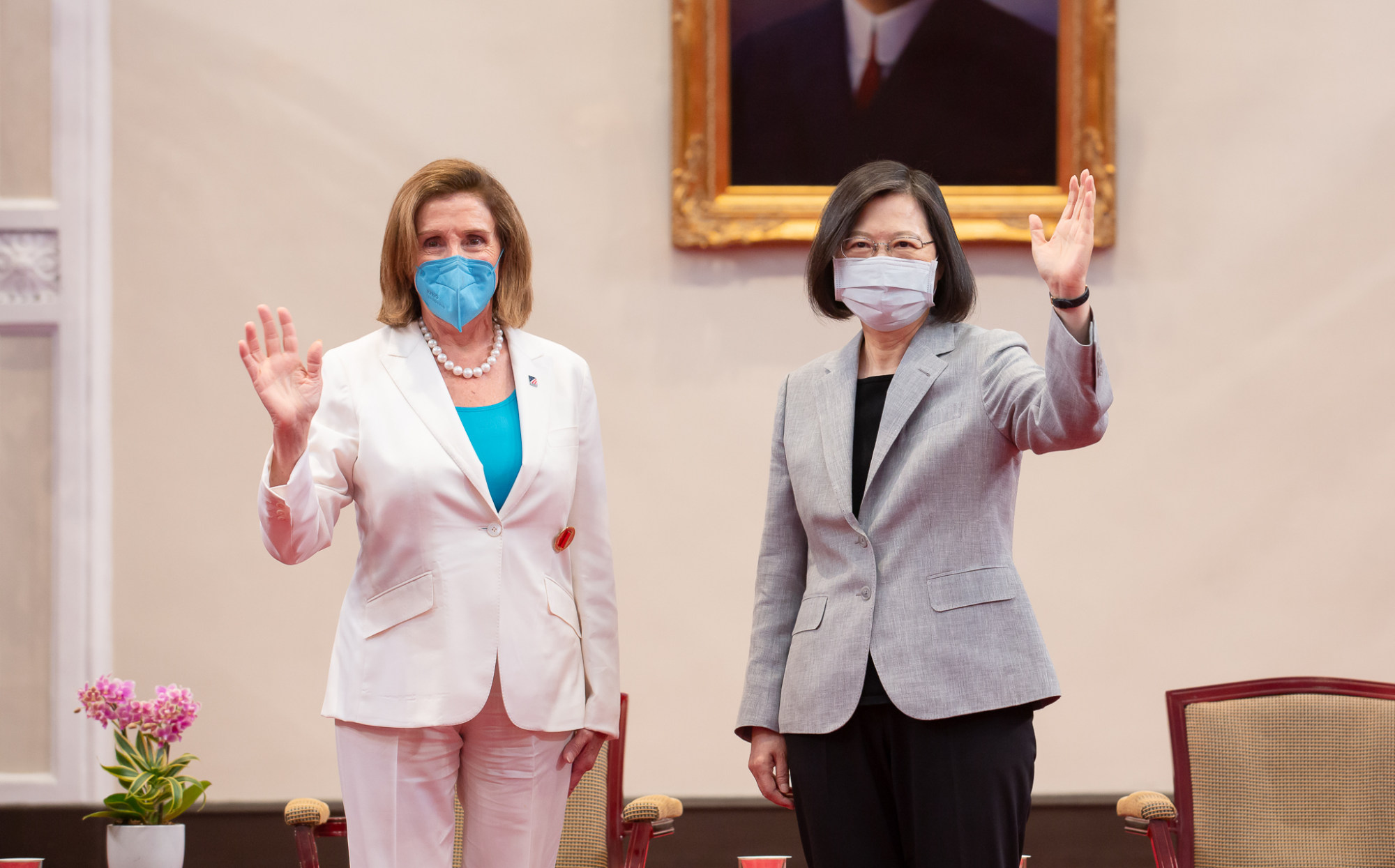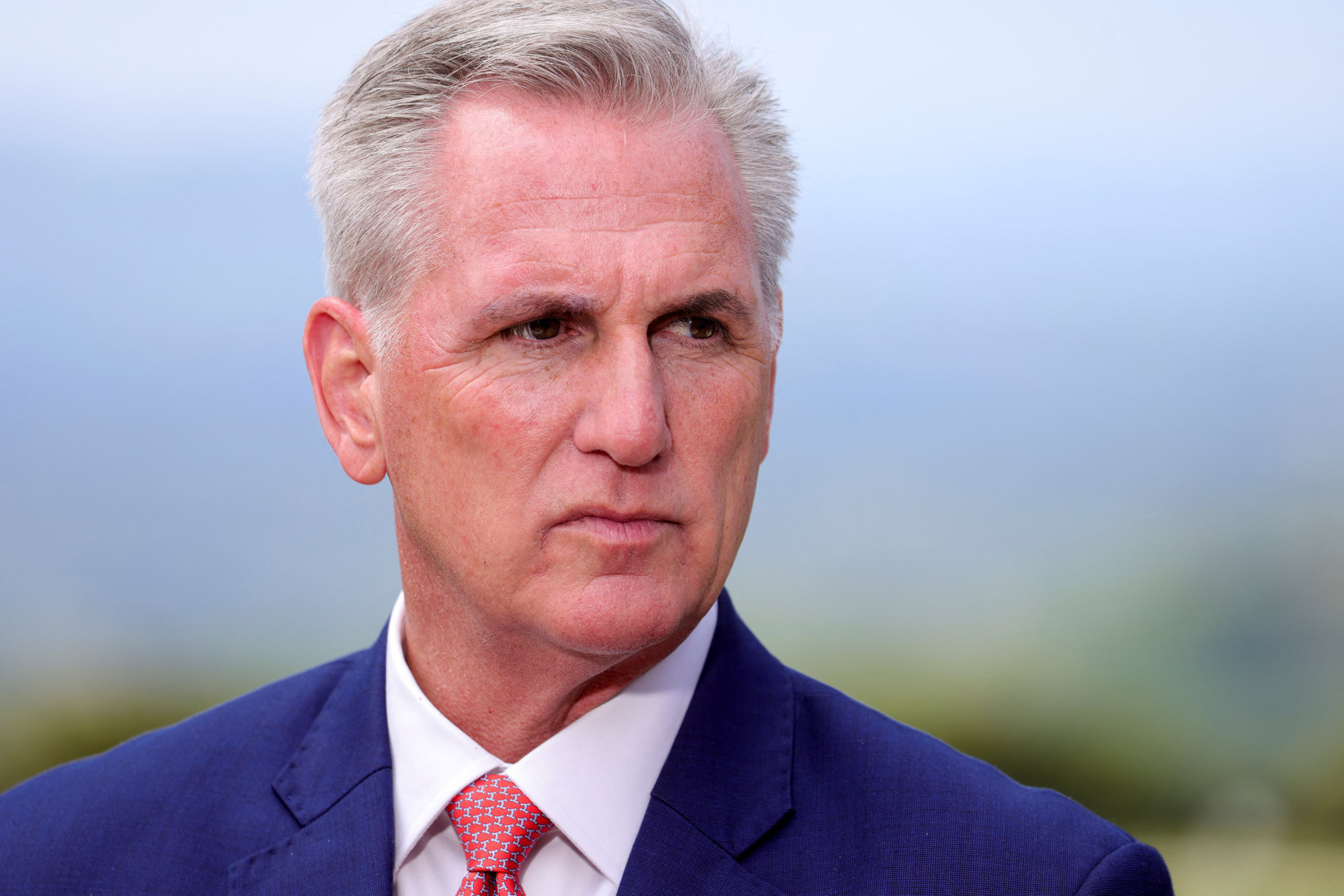
US House Speaker Kevin McCarthy meets Taiwanese President Tsai Ing-wen in California
- ‘The friendship between the people of Taiwan and America is a matter of profound importance to the free world,’ says third-ranking US official
- Beijing threatened retaliation, with Chinese embassy in Washington conveying ‘deep concern and firm opposition’ to meeting
“I believe our bond is stronger now than at any time or point in my lifetime,” McCarthy said, standing next to Tsai after their meeting.
“The friendship between the people of Taiwan and America is a matter of profound importance to the free world and it is critical to maintain economic freedom, peace and regional stability,” he added.

McCarthy and Tsai cited the legacy of Ronald Reagan and his role in strengthening US-Taiwan relations through the “six assurances” – commitments Washington made to Taipei in 1982 to disregard Beijing’s opposition to US arms sales to the island.
Washington’s one-China policy also includes the three Joint Communiques, agreements that formalised America’s formal diplomatic recognition of the People’s Republic of China, the last of which was signed by Reagan.
The Taiwan Relations Act, signed by then-president Jimmy Carter soon after Washington switched official diplomatic relations from Taipei to Beijing in 1979, is the third component of the policy.
“President Reagan said it best: freedom is never more than one generation away from extinction,” Tsai said.
“It is no secret that … the peace that we have maintained and the democracy which [we] have worked hard to build are facing unprecedented challenges,” she added.
The meeting with McCarthy marked the first time a Taiwanese leader had met a House speaker, the third-ranking US official, on American soil since Washington switched diplomatic recognition.
Robert Sutter, a professor of international affairs at George Washington University, called the joint verbal press statement significant because previous transits made by Tsai did not feature such high-profile events.
PLA launches drills as Taiwanese president set to meet US House speaker
Sutter said Beijing’s reaction to Pelosi’s visit did not work in its favour, and that a coming presidential election in Taiwan could incentivise restraint.
“They’ll want to support the candidates who … are not leaning towards [Taiwanese] independence. And so if they double down their pressures on Taiwan … they run that risk it’s going to backfire, and the candidates that they don’t want to get elected will get elected,” he said.
Ahead of Wednesday’s meeting, Li Xiang, a representative from the Chinese embassy in the US, reportedly contacted various congressional offices in Washington to express “China’s deep concern and firm opposition” to the gathering.

According to a screenshot of an email shared by Ashley Hinson, Republican congresswoman of Iowa and part of the delegation in California, Li said China would not “sit idly by in the face of a blatant provocation and will most likely take necessary and resolute actions in response”.
The Chinese Embassy in Washington sharply criticized the meeting on Wednesday evening, slamming the US for its “grave mistake” in allowing it to go ahead.
PLA actions are not uncommon before or after visits by Taiwanese leaders to the US. Beijing staged missile tests and war games near Taiwan after Taiwanese president Lee Teng-hui visited the US in 1995, the first such instance after Washington restored official relations with the PRC in 1979.

William Kirby, a China studies professor at Harvard University, said Tsai’s apparent wish to meet McCarthy in California instead of her home turf showed her uncertainty over whether the House speaker and other lawmakers expressing support for Taiwan would translate to military aid if the mainland were to attack.
“Are those who are embracing Taiwan with such remarkable affection today individuals who can be counted on to assist Taiwan in a crisis?” he added. “If I were Tsai Ing-wen I should worry about that, and I think this is one reason why she did not want Mr McCarthy to visit Taiwan.”
Beijing condemns Taiwanese leader’s ‘sneaky transit’ in US
Still, Kirby said he believed that Tsai’s US visit – with its photo ops and multiple press engagements – pushed the boundaries of Washington’s informal relations with Taipei, calling it the highest-profile visit by a Taiwanese president since Lee’s 1995 trip. .
Members of congress, for their part, promised action during a press conference later in the afternoon on Wednesday.
McCarthy, hailing “productive” conversations with Tsai, committed to more timely arms sales to Taiwan, strengthening economic cooperation and promoting shared values on the world stage.
Since the new Republican-led House first convened in January, Congress has introduced at least 15 pieces of Taiwan-related legislation.
While the Biden administration has insisted that Washington’s one-China policy has not changed, some protocols have been revised in recent years to allow easier engagement with Taiwanese officials.
The guidelines “encourage US government engagement with Taiwan that reflects our deepening unofficial relationship”, State Department spokesman Ned Price said then.
Greater engagement between US and Taiwanese officials was already apparent before Tsai’s trip.
Various members of Congress have travelled to Taiwan in recent months, including Mike Gallagher, a Wisconsin Republican and chair of the House select committee, who returned from a trip in February urging the US to “move heaven and earth” to deter Beijing from showing aggression towards Taiwan.
Gallagher is leading a bipartisan delegation on a three-day trip to California, timed to intersect with Tsai’s trip. The group is also meeting with military experts as well as tech and entertainment executives to discuss China’s influence in the US.
Back Taiwan’s bid to join global groups, Tsai urges democratic countries
McCarthy said in Wednesday’s press briefing that his meeting with Tsai on American soil would not preclude him from visiting Taiwan in the future.
But as American officials and Taiwanese leaders stage ever-higher profile visits, Harvard’s Kirby says that it’s clear that the “consistent” policy of strong but informal US relations with Taipei since Washington’s establishment of diplomatic relations with China “is changing as we speak”.


